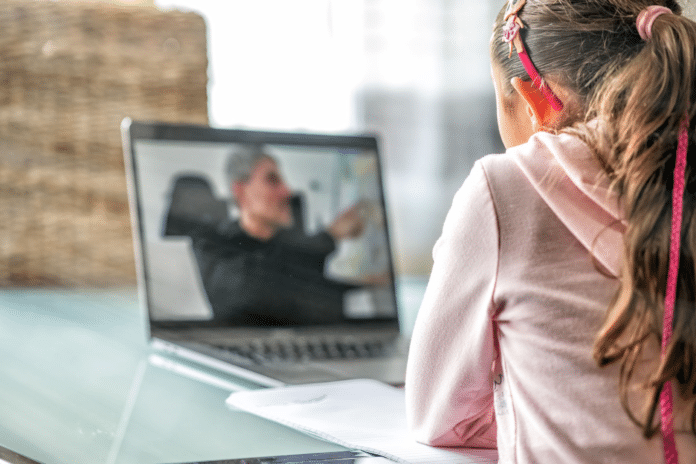(The Center Square) — With the holiday break coming to an end Monday, a number of school districts across the country are deciding to go fully remote to start the new year as COVID-19 cases rise. These decisions come despite mounting evidence that pandemic lockdowns and other restrictions have taken a significant mental and emotional toll on children.
Milwaukee Public Schools on Sunday night announced it will begin the calendar year with remote learning on Tuesday, with a goal of returning to in-person classes on Jan. 10.
In New Jersey, Newark, Jersey City, Paterson and East Orange schools are among those taking a pause on in-person learning and going fully remote when classes are set to return Monday.
The same can be said for Prince George’s County School District in Maryland, where more than 130,000 students attend. And in Mount Vernon, New York, Cleveland, Ohio, Niles Township and West Chicago, Illinois, and elsewhere.
“We have been closely monitoring our staffing needs concerning our 2nd Semester return, ” a message sent to families of Niles Township schools in Skokie, Illinois, reads. “Due to staffing shortages, we have made the determination, with guidance from the Skokie Health Department, that we need to implement remote learning (Adaptive Pause) for the weeks of Jan. 3-7 as well as Jan. 10-14, 2022. We made the decision to take a 2-week pause following guidance from the Illinois Department of Health (IDPH) and the Illinois State Board of Education (ISBE) which says that school staff, faculty and students will continue to follow the 10-day isolation period for confirmed positive COVID-19 cases.”
The U.S. Centers for Disease Control recently revised its quarantine guidance for confirmed positive cases, saying asymptomatic people can isolate for just five days, but ISBE is directing schools to maintain the 10-day quarantine window.
In Pittsburgh, 12 schools are going remote on Monday also due to staffing shortages caused by an outbreak in cases, the school district announced late Sunday. The district hopes to return to in-person learning on Tuesday, it said.
Teachers unions across the country are openly advocating to close schools in January in the wake of a rise in cases due to the omicron variant.
“Recklessly opening school buildings right now instead of working to reduce community transmission is, once again, needlessly putting millions of lives at risk,” National Educators United tweeted. “National #2weeks pause now to #ProtectOurCommunity.”
Other teachers unions are using the hashtag #SickOut2SaveLives to endorse walkouts in New York City, Chicago and elsewhere.
But academic research increasingly finds that closing schools and other COVID-related restrictions are hurting children’s development.
“School closures contributed to increased anxiety, loneliness and stress; negative feelings due to COVID-19 increased with the duration of school closures,” a study from Professor Carl Heneghan, director of Oxford University’s Centre for Evidence-Based Medicine, found.
“[E]ight out of ten children and adolescents report worsening of behavior or any psychological symptoms or an increase in negative feelings due to the COVID-19 pandemic,” Heneghan wrote.
When lockdown restrictions were first imposed last year, mental health-related visits to emergency rooms increased by 24% in those ages 5–11 and by 31% in those ages 12–17, the CDC reported. The data are listed in a newly published Pediatric Health, Medicine and Therapeutics journal article that highlights the worsening mental health conditions of children in the U.S.
Working parents of younger school-age children also will have to call off work or make other arrangements to help their children during remote learning.
Reporter Bethany Blankley and Just The News contributed to this report.
















